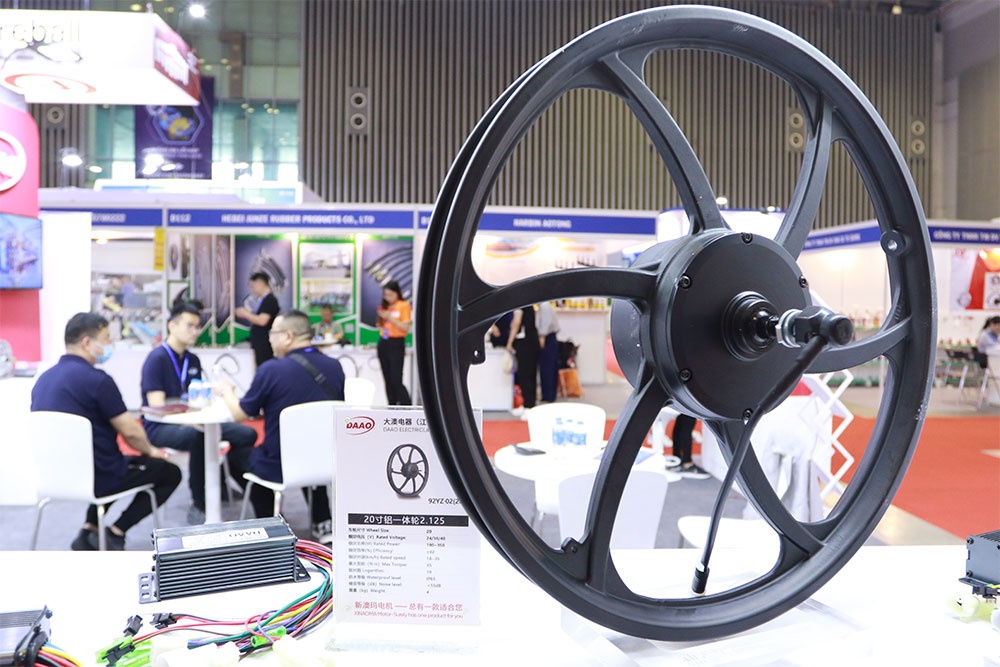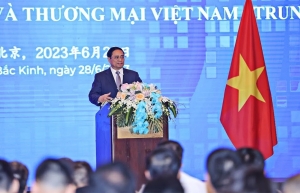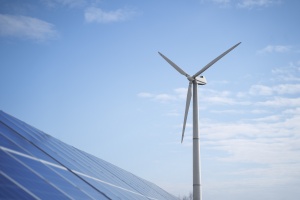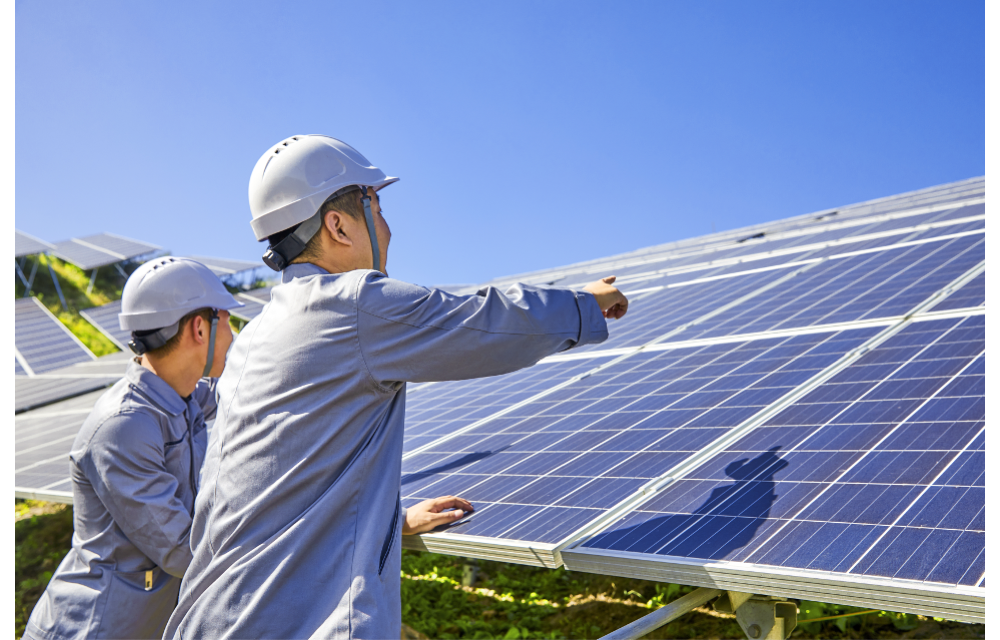Chinese investors eye new business deals
 |
| Chinese investors are pouring more money into Vietnam, photo Le Toan |
Pham Ngoc Thien Thanh, head of Research and Consultancy at CBRE Vietnam, recently gave a positive outlook for Vietnam’s industrial real estate sector for 2023.
Accordingly, last week’s findings by CBRE Vietnam indicate a robust influx of investors, predominantly from China, Japan, the US, and the EU, who are keen on acquiring industrial land and warehouses in Vietnam. These investors account for a notable 70-80 per cent of inquiries received by CBRE, predominantly from the southern and northern Vietnamese regions.
“Vietnam’s deepening ties with influential global partners, especially China and United States, have catalysed this investment momentum. As these relationships continue to flourish, we expect the Vietnamese industrial real estate market to see even more pronounced interest from foreign investors in the near future,” Thanh said.
In a strategic move to expand its global footprint, China’s Trina Solar, the world’s leading solar energy producer by revenue, in late September unveiled that it is on the brink of unveiling its third production facility in Vietnam. Set to span 25 hectares, with an investment of around $400 million, this plant is slated to be operational by 2025.
Similarly, China’s Sunny Group has received an investment certificate to develop a $150-million factory in the central province of Nghe An. The factory will specialise in producing cameras for both mobile phones and vehicles, as well as other electronic devices.
The facility is targeted to commence operations in Q4/2025, potentially offering employment to 20,000 individuals.
Interestingly, an industry insider revealed that Sunny Group just began its assessment for a potential investment site in Nghe An in early July 2023. Merely two months later, the group set its sights on the WHA Industrial Zone, finalising their investment proposal by September 12.
“Remarkably, in just a week following their proposal’s submission, all bureaucratic hurdles were cleared, underlining the group’s efficient decision-making. By September 20, Nghe An province expedited its approval, granting Sunny Group the investment registration certificate for their project,” the source said.
In the southern province of Binh Phuoc, China’s Shandong Haohua Tire has secured an investment certificate for a $500-million tyre factory.
Amid these developments, Zhang Manping, vice president of Energy China, emphasised the company’s renewable energy endeavours, remarking, “Our ventures in provinces such as Ha Tinh, Ninh Thuan, and Quang Tri highlight our unwavering dedication to green energy.” The statement came during a discussion with Vietnamese Prime Minister Pham Minh Chinh last month.
Chen Yun, chairman of China Railway Construction Corporation (CRCC), voiced a keen interest in railway projects, expressing, “We’re poised and ready to contribute.”
Furthermore, Wang Xiaojun of PowerChina shared aspirations for power project investments and showcased a penchant for Vietnam’s high-speed railway initiatives.
In addition, Huawei is another key name involved. Simon Lin, chairman of the Asia-Pacific region for Huawei Technologies, highlighted the company’s unwavering commitment to Vietnam.
“Huawei’s dual-focused strategy in Vietnam aims to both hasten the country’s green transition and bolster its digital talent reservoir,” he said.
Huawei has been instrumental in Vietnam’s telecommunications evolution, having significantly contributed to the nation’s 2G, 3G, and 4G infrastructures.
South China Morning Post last month also noted an unprecedented interest from Chinese business owners exploring the idea of relocating their factories to Vietnam during the China-ASEAN Expo in September.
A testament to this burgeoning interest was witnessed when, after a business networking session lasting over an hour with more than 300 participants at the CAEXPO, a business representative of the Deep C Industrial Zones in Vietnam, still had dozens of potential Chinese clients waiting for consultations.
China’s media agency further emphasised the allure of Vietnam, citing the country’s stable political environment and its young, low-cost workforce. Vietnam has long been recognised as a powerhouse in manufacturing and exports within the region due to these strengths.
In a Reuters report in August, it was highlighted South Korean and Chinese magnet companies, including an Apple supplier, are making moves to inaugurate their factories in Vietnam. This shift is reportedly a conscious effort to diversify supply chains, particularly away from China, to mitigate the risks associated with the escalating China-US tensions.
Specifically, South Korea’s Star Group Industrial (SGI) and China’s Baotou INST Magnetic are joining the growing tide of companies that are diversifying their assembly lines. These companies, hailing from sectors as diverse as electronics to automobiles, are making the shift in the face of mounting trade barriers.
 | PM calls for more Chinese investments Prime Minister Pham Minh Chinh called on Chinese investors to expand investment in Vietnam, while addressing the Vietnam - China Trade and Investment Cooperation Forum in Beijing on June 28 within the framework of his official visit to China. |
 | Vietnam's energy sector sparks interest from Chinese corporations The energy sector in Vietnam has piqued the interest of Chinese corporations, paving the way for collaborations and potential investments in renewable energy projects. |
 | Energy China eyes expansion in Vietnam with increased investment in renewable projects Energy China, a Fortune 500 energy conglomerate, has unveiled plans to expand its investments in Vietnam. |
What the stars mean:
★ Poor ★ ★ Promising ★★★ Good ★★★★ Very good ★★★★★ Exceptional
Related Contents
Latest News
More News
- US firms deepen energy engagement with Vietnam (February 05, 2026 | 17:23)
- Vietnam records solid FDI performance in January (February 05, 2026 | 17:11)
- Site clearance work launched for Dung Quat refinery upgrade (February 04, 2026 | 18:06)
- Masan High-Tech Materials reports profit: a view from Nui Phao mine (February 04, 2026 | 16:13)
- Hermes joins Long Thanh cargo terminal development (February 04, 2026 | 15:59)
- SCG enhances production and distribution in Vietnam (February 04, 2026 | 08:00)
- UNIVACCO strengthens Asia expansion with Vietnam facility (February 03, 2026 | 08:00)
- Cai Mep Ha Port project wins approval with $1.95bn investment (February 02, 2026 | 16:17)
- Repositioning Vietnam in Asia’s manufacturing race (February 02, 2026 | 16:00)
- Manufacturing growth remains solid in early 2026 (February 02, 2026 | 15:28)

 Tag:
Tag:
















 Mobile Version
Mobile Version